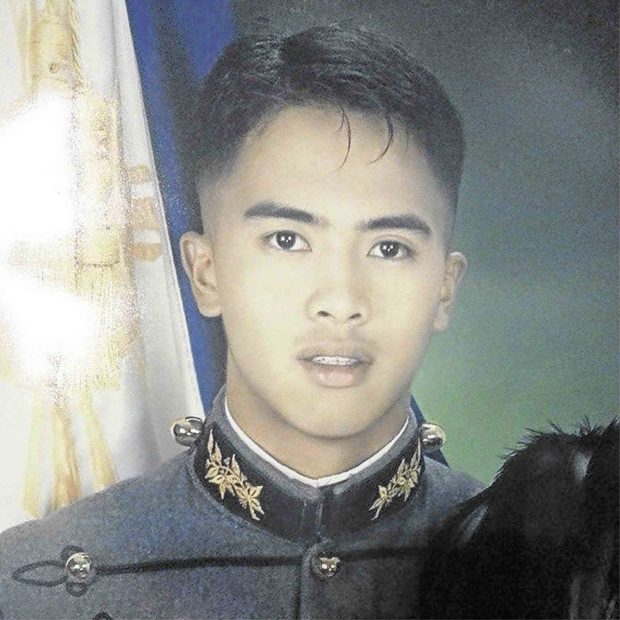
Capt. Jeffrey Buada
MARAWI CITY—He took off his helmet and bullet-proof vest, laid down his firearm and turned on the megaphone to speak to the Islamic State-inspired gunmen here on Oct. 19.
“I just wanted to get the children, the women and the injured (hostages),” Capt. Jeffrey Buada said through the megaphone.
At the risk of being shot, Buada, commander of the Army’s 15th Scout Ranger Company, slowly walked through the rubble and tried to get near the building, where hungry and thirsty hostages were anxiously waiting to be rescued.
As he inched forward, the gunmen warned him against getting past the wall that separated them.
Children hostages
But the sight of enemies holding children hostages was too much for Buada to bear. He said he saw his daughters— aged 4 and 11—in them.
The story unfolded when fighting between Buada’s unit and the gunmen momentarily stopped around 11 a.m.
One of Buada’s men, Staff Sgt. Allan Sumalpong, approached him and said he wanted to help a man with a leg wound who was limping in front of the building where the gunmen had fled.
Buada said he did not allow Sumalpong to go by himself and covered him while he retrieved the wounded hostage.
Too risky
“I accompanied him because it was too risky for him to go by himself,” he said.
The gunmen did not fire on them while the wounded hostage was being rescued.
“While (Sumalpong) was helping the wounded hostage, I saw that there were more hostages inside the building. They were weak and the gunmen were with them,” Buada said.
There and then, Buada decided to negotiate with the gunmen for the freedom of the hostages.
But before doing so, he removed his battle gear and armor.
“I wanted to show them that I was unarmed so that they would give the hostages to us. I really exposed myself,” Buada said.
His men protested and repeatedly asked him to put on his vest and get his firearm.
“They were yelling at me to don my vest and not to move away from my gun. But I made up my mind and I said it was okay,” Buada said.
The gunmen who faced him later asked for water and food. They, too, were hungry and thirsty.
Buada said he obliged and asked his men at the back to bring forward water and biscuits.
“They said they were hungry and thirsty, so I asked my men to bring in some food and water,” he said, adding that he drank water in front of them to assure them that it was safe to drink.
Freed from captors
When the gunmen did not fire on him even as he drew near to bring them food and water, Buada said he realized he would be able to get all the hostages without a hitch.
Initially, five hostages started coming out as Buada got closer. His men also removed their vests and laid down their firearms when more hostages came out.
He said he could not avoid thinking the gunmen might suddenly shoot him.
“But my thought was if I die, at least we got the hostages,” Buada said.
“It was a come-what-may situation. It was painful to see them in that situation and just leave them there,” he said.
The evacuation of hostages took several minutes and was abruptly ended when they heard a gunshot.
Heavy exchange
As Buada and his men—who were tagging the last hostages rescued—were crawling on the ground, a heavy exchange of gunfire started.
“I guess some of the gunmen saw we already took away many hostages,” he said, explaining why the skirmishes erupted anew in the middle of the rescue.
Buada said the thought of hostages left behind pained him but he could not do anything anymore as the fighting had resumed by then.
When the war finally ended on Oct. 23, Buada’s unit lost one soldier, with 40 others wounded.
Buada is a native of Baguio City and a member of the Philippine Military Academy’s Class of 2007.
He said his ambition as a child was to become an architect. He was able to take the PMA exams because of his friends and classmates, who also wanted to serve in the army. He was the only one who fulfilled that dream.